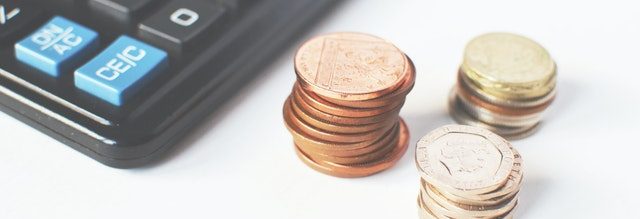Find accountants for the self employed here at Accountantcosts.co.uk
Are you self employed and looking for an accountant? Accountantcosts.co.uk can find local accountants in your area, helping you to save time and money on accounting. Simply fill out the contact form below to get started!
Many UK small businesses are run by individuals who are self-employed and act as sole traders. Contractors, landlords and freelance workers are also usually self-employed. Using an accountant to help with submitting returns for your self-employed business ensures that you remain up to date with your filing requirements. The typical cost for a self-employed tax return is £200-£300.
Do I Need an Accountant for my Self-employed Business?
There is no mandatory requirement to use an accountant, , but many self-employed people do hire an accountant to seek professional advice.
Professional services for self-employed people can help with:
- Registering your business as a sole trader
- Ongoing bookkeeping
- Calculating and submitting tax returns
- Working out VAT returns and help with budgeting
- Producing year-end accounts
- Managing your payroll
- Advising on the best remuneration policies
Many self-employed people use an accountant at the end of the tax year to help with submitting their tax return. However, accountants can provide services and support with financial matters throughout the year.
Find out how much it'll cost to outsource your bookkeeping
Get a more accurate, no-obligation quote by filling in this form.
How much does an Accountant Cost for a self employed person?
The cost of using an accountant will depend on the nature of the work you would like them to do, how complex this is, and whether you are working with them regularly or as a one-off.
In the UK the average cost for an accountant to prepare and submit your self-employed tax return is around £200-£300.
You should agree with your accountant in advance what they will charge, and what this work does and does not include. Rates can be:
- Per hour - for short, one-off tasks.
- Per project - a fixed fee to complete a piece of work.
- Commission based - more common for long-term projects and usually calculated as a percentage of the value of the project.
Related Reading
- How much does an accountant cost for a small business?
- How much does a financial advisor cost?
- Bookkeeping costs
Benefits of Using an Accountant for a Self-employed Business
One of the main considerations when deciding whether to use an accountant is the cost. However, most accountants will offer a fixed price for a piece of work, such as submitting your annual self-employed tax return.
There are multiple advantages, and you may end up saving money by having a professional advise you on the expenses you can claim.
Benefits of using an accountant include:
- Saving money - your accountant can advise on tax efficiencies, how to treat transactions such as buying or selling assets, and ensuring that you claim all your allowable expenses.
- Avoiding fines - filing late returns, or incorrect returns, can carry steep penalties and interest costs.
- Advice to help grow your business - your accountant can provide independent support with choosing options such as lending or mortgage products, and support the growth of your business
- Removing stress - filing returns can be very stressful for self-employed people who are not confident in understanding the forms or calculations.
Remember that you can choose to file returns and manage your bookkeeping yourself, but it is essential to ensure that all of your calculations are accurate and that your returns are submitted in good time.
What Expenses are Claimable for Self-employed Returns?
Understanding which costs are deductible, and which are not, is one of the crucial aspects to accurately submitting a self-employed tax return.
If you don't claim valid expenses, you will end up paying more tax than you need to. If you claim expenses that are not valid, you could face penalties and investigations from HMRC.
Expenses that you claim must be related to your self-employed business, and you should always keep records of receipts and payments to evidence those costs. Where it is difficult to keep a record of a cost - for example, a Tube ticket - you can still claim those costs using your bank records as proof of the payment made.
It is always wise to consult an accountant if you are unsure about whether you can claim an expense. Claiming for something not permitted is considered tax fraud, and the repercussions can be severe!
What Happens if I Make a Mistake on My Tax Return?
If you have made a mistake on your tax return, you can amend this without a problem if the filing deadline has not yet passed.
However, more significant issues arise if you claim a non-genuine expense - whether knowingly or inadvertently. Should HMRC believe an expense to have been claimed negligently or fraudulently, they will usually investigate your affairs and may issue a penalty.
The fine depends on the circumstances but is usually 100% of the tax that should have been paid, plus interest. If HMRC believes the invalid claim to have been fraudulent, they may issue a penalty of 200% of the tax unpaid.
These penalties mean that many self-employed people choose to use an accountant to avoid any potential of making an error or claiming for a non-allowable expense.
Lack of knowledge is not an acceptable reason for making a significant error, so it is wise to take the time to understand the rules around claimable expenses fully.

1. Tell us which bookkeeping service you're looking for
What do you need help with? Payroll, cloud accounting or general bookkeeping?
2. Tell us where your company is based
We can put you in touch with local or national businesses, depending on your preference.
3. Compare bookkeeping costs
We'll put you in touch with trusted local companies and freelancers who will provide you with no-obligation quotes.
Frequently Asked Questions
What Alternatives are there to hiring an Accountant for a Tax Return?
There is no requirement to use an accountant, and you can choose to complete your accounts yourself.
Some self-employed businesses use alternatives such as:
- Purchasing accounting software to keep up to date with their bookkeeping and file digital returns. However, you need to be able to verify the figures are accurate and make any changes required.
- Hiring a freelance accountant - freelance accountants work independently from a practise, and are usually more cost-effective. It is always advisable to verify their qualifications and experience before going ahead.
- Using a virtual accountancy service - virtual services are remote and typically require digital access to your files or bookkeeping. Be sure to understand what services are included; for example, will your virtual accountant check your return figures thoroughly, or only provide a filing service from the information you provide?
What Factors Impact the Cost of my Self-employed Tax Return?
Most accountants will offer a fixed fee for this sort of service so that you can budget in advance for the cost.
How much your tax return costs will depend on:
- Whether you have plenty of time before the filing deadline or need an expedited service if you need your accountant to file your return quickly.
- How comprehensive your records are - if you have all of your expenses, receipts and totals calculated this will minimise the administrative work of your accountant.
- How complicated your business is - if you have multiple revenue streams, then it may cost more than for a simple business structure.
Get quotes from accounting firms
Save 100's on your yearly accounting by comparing quotes from local companies.


